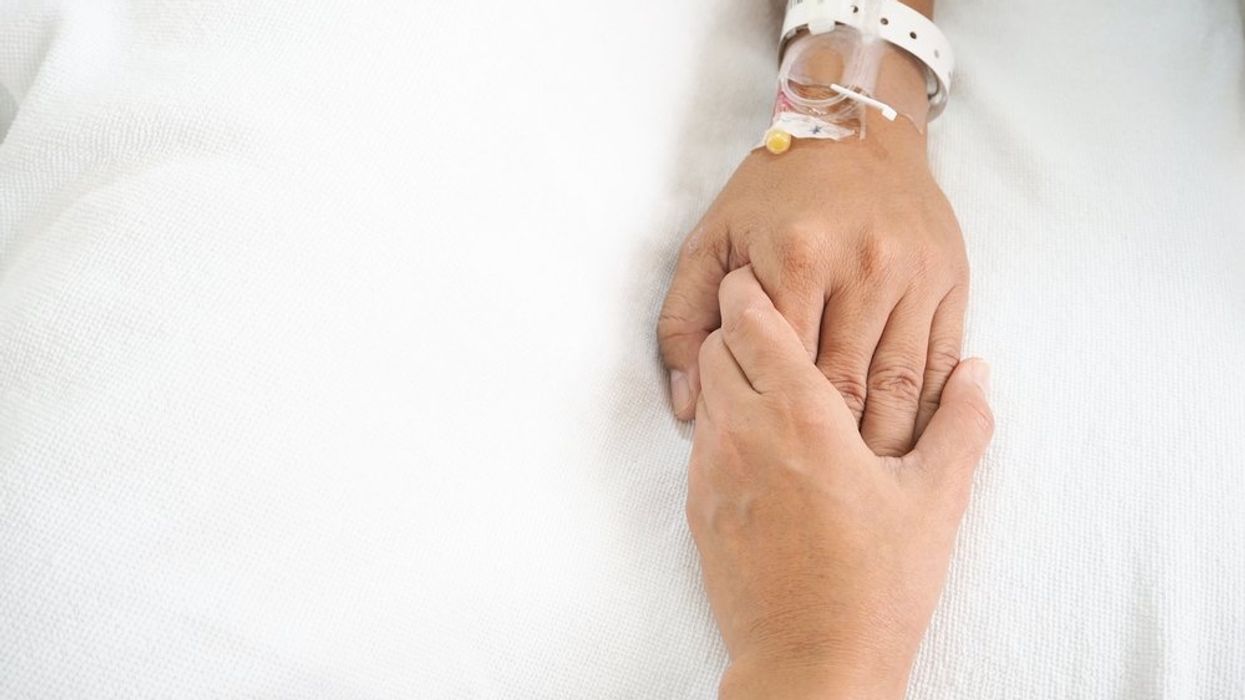(CNN) — Dino Carlone was frightened when he was diagnosed with bladder cancer three years ago, but his spirits were buoyed when he learned that he could get help from a highly effective drug with a great track record.
"You're telling yourself, 'OK, I have cancer, and it's a very aggressive cancer, but I've got great therapy. There's great numbers,' " said Carlone, 65.
Carlone was supposed to receive treatment for several years, but he says he only got it for only a few months because his urologist told him there was a shortage of the drug, called Bacillus Calmette-Guérin, or BCG.
Carlone said he was shocked and angry that in a country as wealthy as the United States, there's a shortage of an important cancer drug.
A new report estimates that more than 8,300 US patients a year are not receiving full BCG treatments for their bladder cancer. BCG is an older drug — it has been around for more than 40 years — and relatively inexpensive. Pharmaceutical companies aren't clamoring to make it.
"This is a terrible crisis. We should be doing everything we can to give every single one of these patients the best chance of survival," said Laura Bray, a board member of the End Drug Shortages Alliance, one of the sponsors of the report. "It's heartbreaking, and we must do better."
A spokesperson for Merck, the sole maker worldwide of BCG, wrote in an emailed statement that the company increased production of the drug by 200% between 2012 and 2019 and has been producing it "to the full extent of manufacturing capacity over the past several years."
Merck is building a facility to expand production of BCG, but it could take five or six years for construction, inspection and regulatory approvals, according to the statement.
"Our company will continue to work to complete this project and meet patient needs in as timely a manner as possible. Our commitment to [BCG] is at the core of Merck's mission to save and improve lives. We continue to recognize the impact supply shortages can have on patients when they cannot receive the medicines they need," the statement says.
A number of factors are contributing to the shortage, which began in 2019. BCG is a biologic drug — which uses bacteria — and so is more complicated to make than many other types of drugs and especially prone to quality control issues.
Sanofi, the other company that once made BCG, started having production problems in 2012. In 2016, it announced that it would stop making the drug the next year.
Also, while cases of bladder cancer are slowly increasing, it's still a relatively small market, and making the drug requires a significant investment.
In a written statement, a spokesperson for the US Food and Drug Administration said that "whenever a shortage occurs, FDA actively works with manufacturers and other U.S. federal agencies to try to address supply issues for the drug product in shortage."
'A nasty disease'
When BCG became available in 1976, it was considered a breakthrough strategy. First used as a tuberculosis vaccine, it contains a weakened bacteria that triggers the immune system to fight the cancer.
"It's an absolutely fabulous drug," said Dr. Benjamin Davies, a spokesperson for the American Urological Association.
Bladder cancer patients receive six rounds of BCG after surgery and then more treatments every few months for a year or two, depending on the person, according to Davies. The treatment is done in the doctor's office, using a catheter that delivers the drug directly to the bladder.
Carlone, of Vero Beach, Florida, said he was supposed to receive BCG doses over a period of about two years. But he said after receiving doses for a few months in early 2020, his urologist told him he wouldn't be able to get his remaining doses because of the shortage.
"It's a very, very frightening circumstance to realize that at that point, what they deem to be an aggressive cancer could in fact come right back," he said.
Bladder cancer has a 30 percent to 40 percent recurrence rate, said Davies, a professor of urology at the University of Pittsburgh Medical Center.
"That's a very high recurrence rate," he said. "It's a nasty disease."
There are about 82,920 new cases of bladder cancer in the US a year and 16,710 deaths, according to the American Cancer Society.
For the new report, 20 health care systems and physician practices responded to a survey from Vizient, a health care performance improvement company.
All of them said they had to use at least one strategy to deal with the BCG shortage, and four of the centers said they couldn't give BCG at all, according to the report.
Because of the shortage, the American Urological Association recommends prioritizing doses for higher-risk patients.
Some medical centers in the survey said they are splitting doses. A vial is supposed to be used for one dose for one patient, but instead, they use it for more than one patient. That could lead to waste, though, because the entire vial needs to used within six hours of opening, said Erin Fox, an adjunct professor at the University of Utah College of Pharmacy and specialist in drug shortages.
Other drugs can be used instead of BCG, but they are more expensive and don't work as well, Davies said.
"So not only can't we give the right drug because of the shortage, but we have to spend more money," he said.
'This is a failure'
BCG is just one of many drugs in shortage, including other cancer drugs for adults and for children.
Carlone wonders why the FDA can't do more to persuade companies to make drugs that aren't necessarily very lucrative.
"To me, this is a failure," he said. "As Americans, you rely on [government] institutions, and the institutions are failing as far as I'm concerned."
According to the FDA statement, the agency "cannot require a pharmaceutical company to make a drug -- or make more of a drug -- even if it is medically necessary. In addition, we cannot control how much of a drug is distributed - or which purchasers will be given priority."
Marta Wosińska, a former senior FDA official, said the federal government could offer financial incentives for pharmaceutical companies to make drugs that are in shortage, similar to the way the government has paid them to make Covid-19 vaccines and treatments.
Wosińska, an economist at the Brookings Institution, said it would be "a little bit of a tall order" to expect pharmaceutical companies to make drugs, or increase production of drugs, that aren't particularly profitable.
"They have a fiduciary responsibility to their shareholders, so you can only ask them to do so much," said Wosińska, who worked on drug shortages as director of the economics staff at the FDA's Center for Drug Evaluation and Research before she left the agency in 2016.
Dr. Yoram Unguru, a member of the core faculty at the Johns Hopkins Berman Institute of Bioethics, said that "pharmaceutical companies can continue to generate profits while ensuring access to essential medicines."
He added that the government has an obligation to fix these shortages.
"The federal government must take a more hands-on approach and maintain a critical stockpile of essential lifesaving medicines and set prices for medications, akin to existing rate-setting bodies that oversee public utilities," he said.
The BCG shortage is expected to continue for years.
The-CNN-Wire
™ & © 2023 Cable News Network, Inc., a Warner Bros. Discovery Company. All rights reserved.
- Jane Fonda Announces Her Cancer Is in Remission ›
- US Cancer Rate Has Fallen 33 Percent Since 1991, Report Finds ›


















































